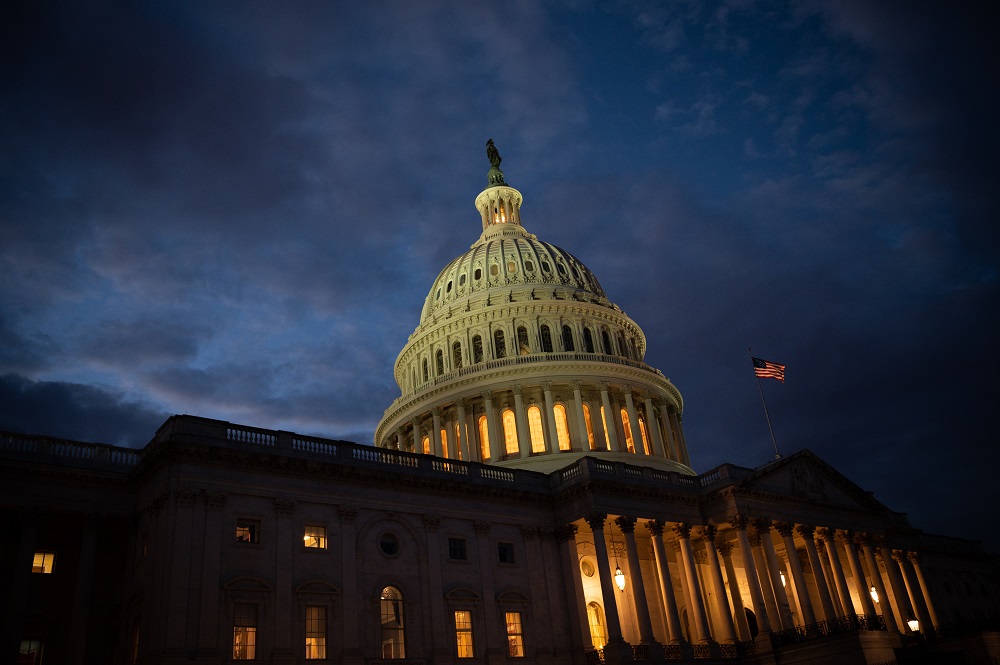
January 19, 2024
The Work Incentive and Employment Effects of Eliminating the Child Tax Credit’s Annual Income Requirement
Abstract Senior House and Senate tax committee leaders agreed to a framework for modifying the Child Tax Credit on January 16, 2024. The most consequential reform would eliminate the Child Tax Credit’s annual income requirement by allowing individuals to calculate their eligibility using their current or prior year’s income, whichever year maximizes the family’s benefit….

January 17, 2024
Congress, Don’t Legislate a Takeover of the Nation’s Rental Housing Market
It is an election year and Congress will soon consider two bipartisan bills to address high rental costs for many renters. The first is the Workforce Housing Tax Credit (WFHTC) and the second would be an expansion of the existing Low-Income Housing Tax Credit (LIHTC). The WFHTC would extend eligibility for subsidized units tenants earning below the area median….

January 15, 2024
New York’s Voter Suppression
Some Americans never register to vote. Those of us who do usually register just once. But over the past two years I’ve registered three times. I might even do it again—for the reason progressives say they endorse: I want my vote to count. In New York, where I live, it isn’t easy. My deep-blue state…

January 12, 2024
When It Comes to the State of the American Economy, Let’s Keep It Real
Here we go again. An oft-repeated economic claim on social media is that most Americans lack the means to cover a $400 emergency expense. More evidence that most of us in “late capitalist” America live paycheck to paycheck. Indeed, another common claim on social media is that nearly 80 percent of US workers live paycheck…

January 12, 2024
Small-Dollar Demonstration Projects Can’t Hide That a National Guaranteed Income Program Would Cost Trillions
Abstract While some have declared that short-term guaranteed income demonstrations (patterned on universal basic income schemes) are working almost universally, such cheerleading misses a major drawback: the enormous costs that would arise if such programs operated at a national level, as proponents intend. This report reviews the costs of some recent proposals to operate such…

January 12, 2024
Congress Shouldn’t Expand Welfare in Return for Corporate Tax Cuts
Bipartisan negotiations to revive the Democrat-favored 2021 Child Tax Credit in return for Republican-favored business-tax cuts are heating up. The business-tax cuts could be helpful in principle — if they focus on encouraging future investment and don’t add to the deficit. But under no circumstance should Republicans agree to turn the Child Tax Credit into a welfare…

January 11, 2024
Tax Credit Nation — Politicians Are Casting New Spending As ‘Tax Cuts,’ Hiding Their True Cost
With the national debt soaring past $34 trillion, liberal politicians hoping to expand the federal leviathan face a conundrum. How can they convince Americans wary of the effects of runaway government spending—painfully evident in recent elevated inflation and interest rates—to nonetheless support even greater expenditures? As President Biden and others demonstrate, one way is to cast new…

January 11, 2024
Biden’s Dismantling of Federal Student Loan Programs Has Inspired Republicans to Go Big
House Republicans released a new legislative package today aimed at bringing down the cost of college, holding universities accountable for the value of their diplomas, and reforming our broken federal student lending system. The College Cost Reduction Act represents the largest serious and comprehensive higher education reform package in decades and, in theory, has plenty…

January 11, 2024
To Better Promote Work, Stop Subsidizing More Benefit Collection
Never shy about lampooning government dysfunction, Ronald Reagan famously said that if you want more of something, subsidize it. But even the Gipper couldn’t have imagined today’s growing zeal to subsidize getting more people on government benefits, which undermines work and leaves too many on the sidelines of the economy. Welfare programs achieve that dubious distinction…

January 10, 2024
Even Congress’s “Tax Extenders” Are About More Benefits
Congress’s long list of unfinished business for the new year includes “tax extender” legislation, which is normally considered before lawmakers adjourn for the holidays in December. The fact that this legislation has lingered into January isn’t the only oddity. In an era of already rapidly rising spending, the more troubling anomaly is much of that supposed…